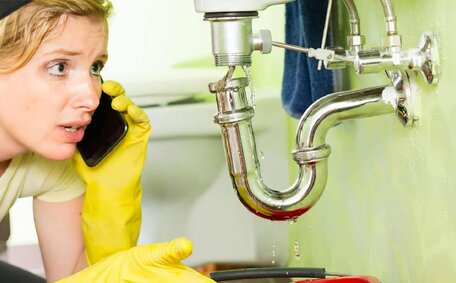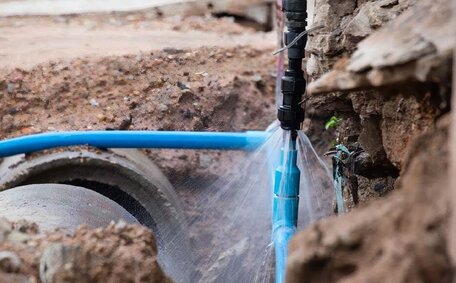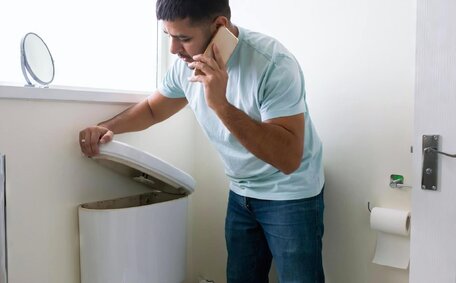Introduction to Gas Safety Certificates
Having your gas appliances regularly serviced and checked by a licenced professional is crucial for your safety. This is where gas safety certificates come in. Gas safety certificates, also known as gas compliance certificates, confirm that your gas appliances and pipework have been inspected by a licenced gas fitter and deemed safe to operate.
In this article, we’ll explain everything you need to know about gas safety certificates. We’ll cover who provides certificates, why they are so important, what gas defect notices are, and how often you should get your gas system checked.
By the end, you’ll understand the key role gas safety certificates play in protecting you, your family, and your property. You’ll also learn tips on finding a reputable gas fitter to undertake the necessary safety checks.
Let’s get started on demystifying the world of gas safety certificates!
Legal Requirements for Gas Safety Certificates
In Australia, gas safety certificates are a legal requirement under gas installation standards AS/NZS5601.1:2010. This standard states that any new gas installation or modification of an existing gas system must be inspected and certified as safe by a licenced gas fitter.
Only qualified and certified gas fitters who are registered with the Plumbing Industry Commission (PIC) can legally issue a compliance certificate for gas work. It is against the law for unqualified individuals to provide certificates.
There are hefty penalties in place if gas work is not certified. Failing to have gas appliances serviced and certified can result in fines up to $5500 for individuals and up to $11,000 for corporations.
Some specific situations where a compliance certificate is mandatory by law include:
- When a property with gas appliances is sold or leased
- After any new gas appliance installation or relocation of an existing appliance
- Following repairs or maintenance on any part of the gas system
So in summary, gas safety certificates are an essential legal requirement intended to protect occupants, properties and businesses from the serious risks posed by faulty gas systems. Using a licenced professional and obtaining the proper certification is not only sensible – it is the law.
When New Certificates Are Needed
There are a few key scenarios where you will need to obtain a new gas safety certificate:
New Gas Appliance Installations
Anytime a new fixed gas appliance is installed, such as a heater or cooker, it must be inspected and certified as safe before use. This applies to both new installations in existing homes, as well as appliances installed in new constructions.
Modifications to Existing Gas Systems
If you modify, extend or alter your gas system in any way, such as moving an appliance to a new location, it will require re-certification. Adding a new gas outlet or increasing the capacity of your existing gas supply will also require an updated certificate.
Reconnecting Gas Systems
If your gas supply has been disconnected for any reason, it will need re-certifying before it can be safely turned back on. This includes situations like renovations, emergency gas shut-offs, or extended periods of disuse.
Regular Safety Checks
While requirements vary across states, gas systems should be re-inspected every 2-5 years as a safety precaution. Your gas fitter can advise you on the recommended schedule for re-certification in your area.
In summary, any change to your gas system or appliances requires an updated gas safety certificate to ensure optimal safety. Don’t hesitate to contact a qualified professional whenever gas safety checks are needed.
What Is Inspected During Certification
When a licenced gas fitter comes to inspect your gas system and appliances, they will carry out a thorough safety check covering multiple key areas:
Gas Appliance Testing
All gas appliances will be individually inspected and tested. The gas fitter will check elements like the controls, ignition, burner flames, stability, pressure and heat output.
For ovens, the various cooking functions will be tested. Visual inspections will check for issues like corrosion or deterioration.
Flue Inspections
The entire flue system will be checked to ensure it is structurally sound, sealed properly, minimises condensation risks and vents outside effectively.
Supply Pipework Checks
A visual inspection will examine all pipes and fittings for leaks, damage or issues. A pressure test confirms adequate supply pressure to appliances.
Ventilation Checks
The fitter will assess that rooms have adequate ventilation for gas appliances to operate safely.
Carbon Monoxide Testing
Using a gas detector, the fitter will check for dangerous carbon monoxide leaks around appliances and pipework.
Regular annual inspections are important to identify any issues early, before they become major problems or safety risks. They also give you peace of mind that your system is fully compliant and functioning safely.
How to Find a Qualified Gas Fitter
Installing, repairing or altering any gas appliance or piping system requires a qualified and certified gas fitter. This ensures the work meets the AS/NZS5601.1:2010 Gas Installations standard and will be safe once certified.
When looking for a reputable gas fitter, here are important things to consider:
Check for Proper Licencing
Only a licenced gas fitter can provide compliance certificates, so double check they are registered with the state regulatory body - such as the Plumbing Industry Commission in NSW. Ask to see their licence and certification.
Look for Experience & Expertise
Choose a gas fitter who is well experienced in a wide variety of gas work. Look for many years of experience specifically in gas systems.
Ask About Their Processes
A good gas fitter will undertake thorough appliance testing, flue inspections, pipework checks and carbon monoxide leak testing. Ensure they take safety seriously.
Compare Reviews
Online customer reviews are a useful way to gauge the reputation and quality of service of a gas fitter. Look for consistently positive feedback.
At Northmead Plumbing, our fully licenced and insured gas fitters undergo rigorous, regular training to maintain extensive expertise across all gas appliances and systems. As a gas safe registered business, we are qualified to issue gas safety certificates and ensure the highest safety standards are met with all gas work.
Contact us anytime to book your next gas inspection.
Maintaining Ongoing Gas Safety
Maintaining ongoing gas safety should be a top priority for all homes and businesses with gas appliances. Unfortunately, it is easy to become complacent over time.
To ensure your gas system remains fully compliant and hazard-free, periodic gas safety checks by a qualified professional are essential. The recommended frequency varies by state, but annual inspections are typical.
During your annual gas safety inspection, the technician will thoroughly assess all appliances, pipework and flues. They will check for issues like leaks, blockages, corrosion, damage, improper ventilation or carbon monoxide risks that could endanger your home or family.
Between inspections, it is wise to remain vigilant for any signs of potential gas leaks. An unusual rotten egg smell or hissing noise could indicate a problem. If you suspect a leak, evacuate the property immediately and call the fire brigade and a gas fitter.
Having up-to-date gas safety certificates provides peace of mind that your gas system is operating safely. Certificates also help support insurance claims in the event of an incident involving your gas appliances.
Investing in regular professional gas fitting servicing and certification provides an invaluable layer of protection for your largest asset - your home and family. Don’t put it off!
Conclusion and Next Steps
Gas safety certificates are a critical component of protecting your home, family and property from the considerable dangers posed by faulty gas appliances and systems.
By law, all new gas installations and modifications must be inspected and certified as compliant by a qualified gas fitter. Failing to obtain the proper certification when required can result in hefty fines.
During the certification process, the gas fitter will thoroughly test all appliances, pipework, flues and ventilation to identify any issues or risks. Regular re-inspections every 2-5 years are strongly advised to maintain ongoing safety.
As a homeowner, if you ever suspect a potential gas leak or issue, evacuate immediately and call emergency services. Never attempt to investigate or fix gas problems yourself.
To keep your family safe and ensure full compliance with the law, be sure to use only licenced gas fitters for any new installations, repairs, modifications or mandatory re-certification.
The team at Northmead Plumbing has the expertise to handle all your gas compliance needs, from routine servicing to new system installs. As licenced and insured professionals, we issue fully certified gas safety certificates that provide legal proof your system is compliant.
For expert gas fitting services you can rely on, contact us today. We are always happy to answer your questions or provide a free quote on new gas work.
We look forward to helping maintain safety and compliance for your home or business gas systems.






